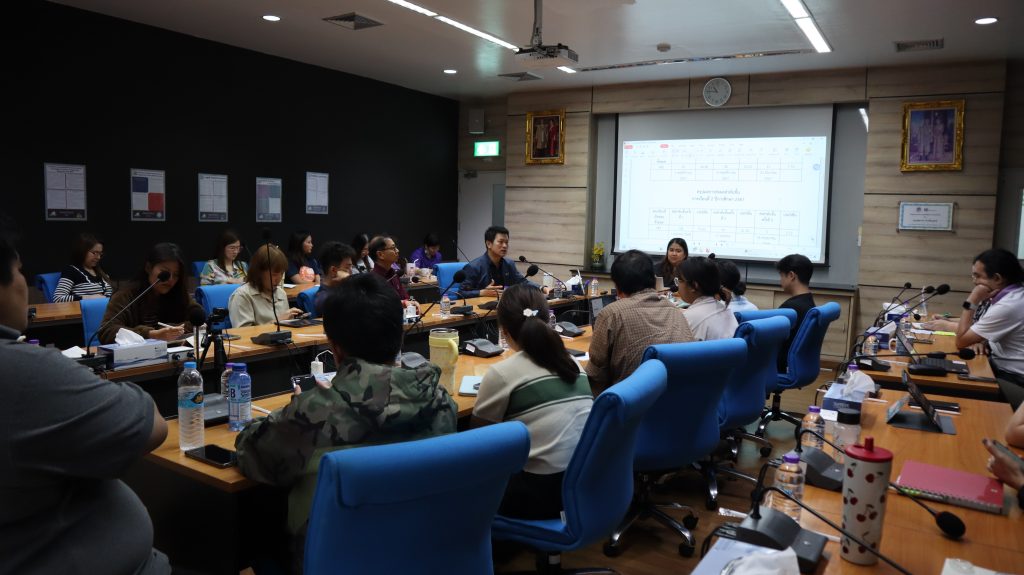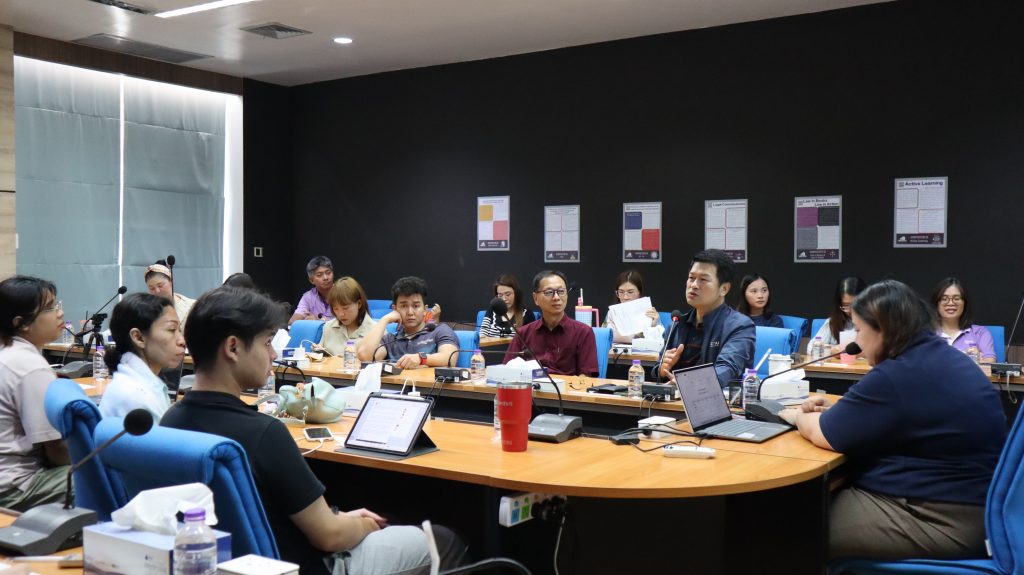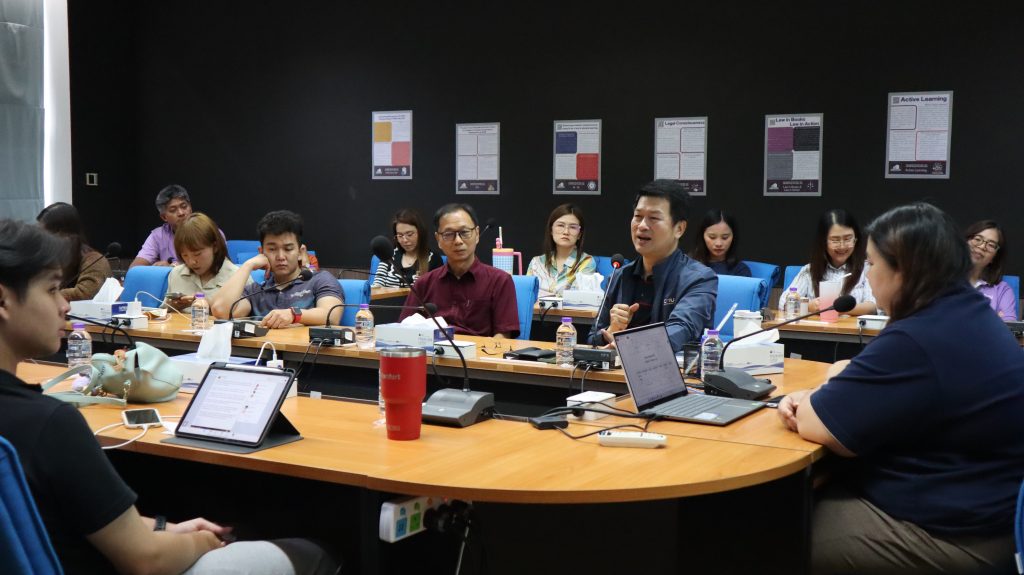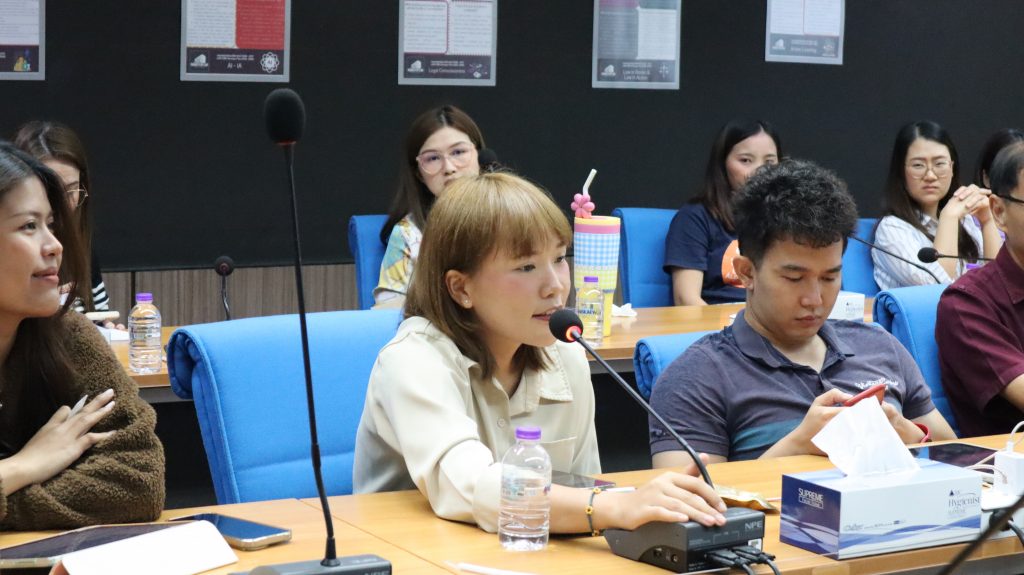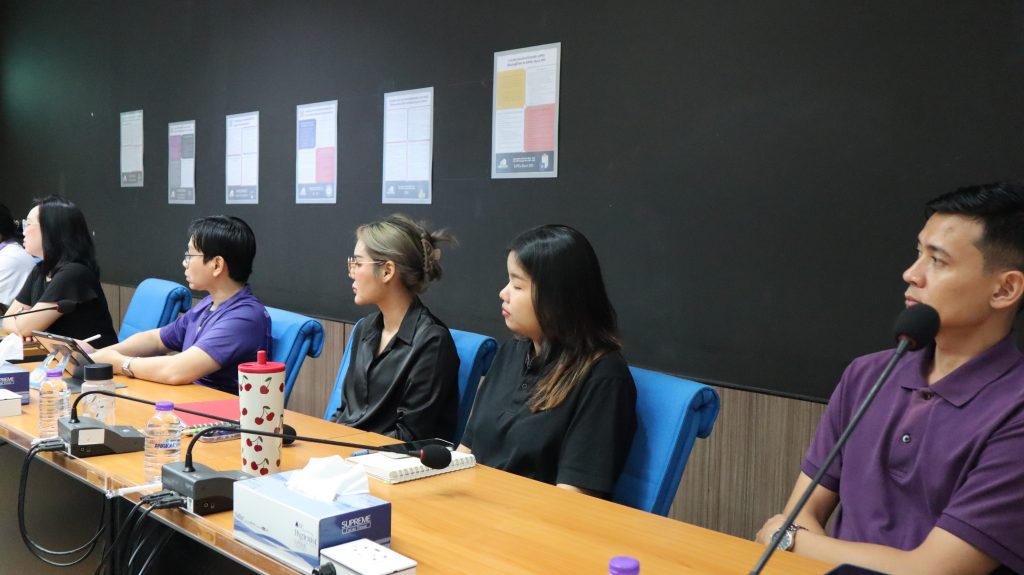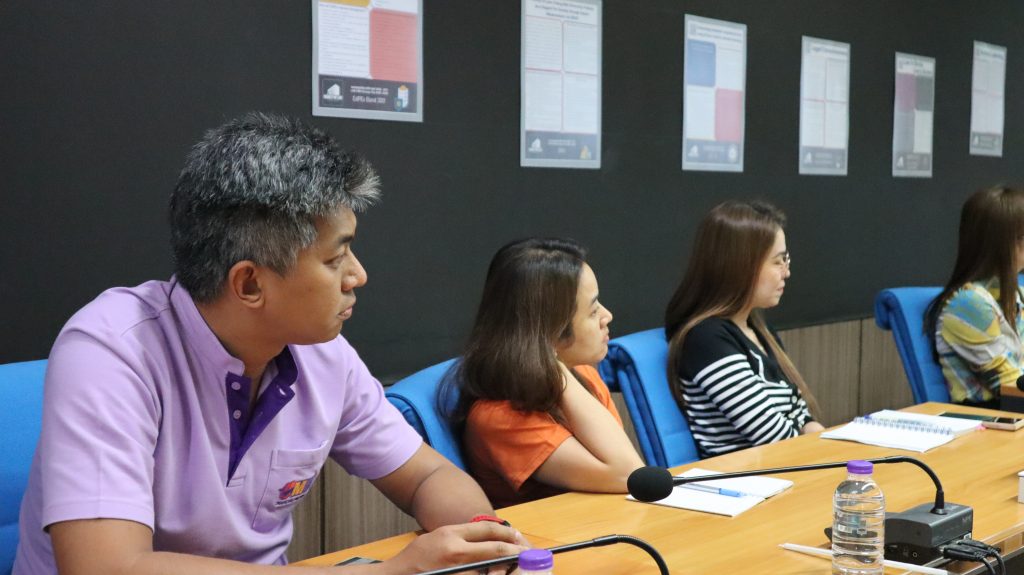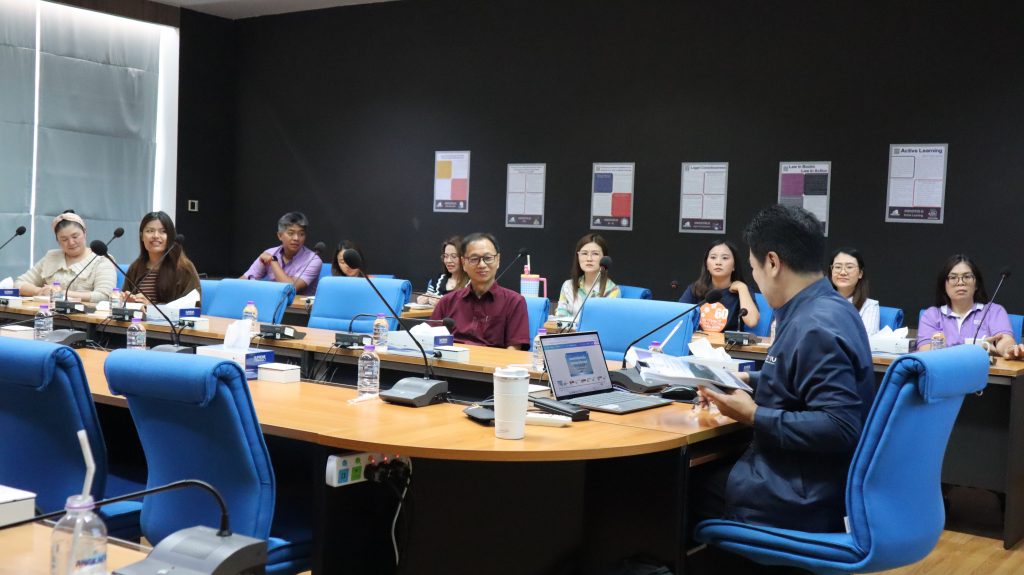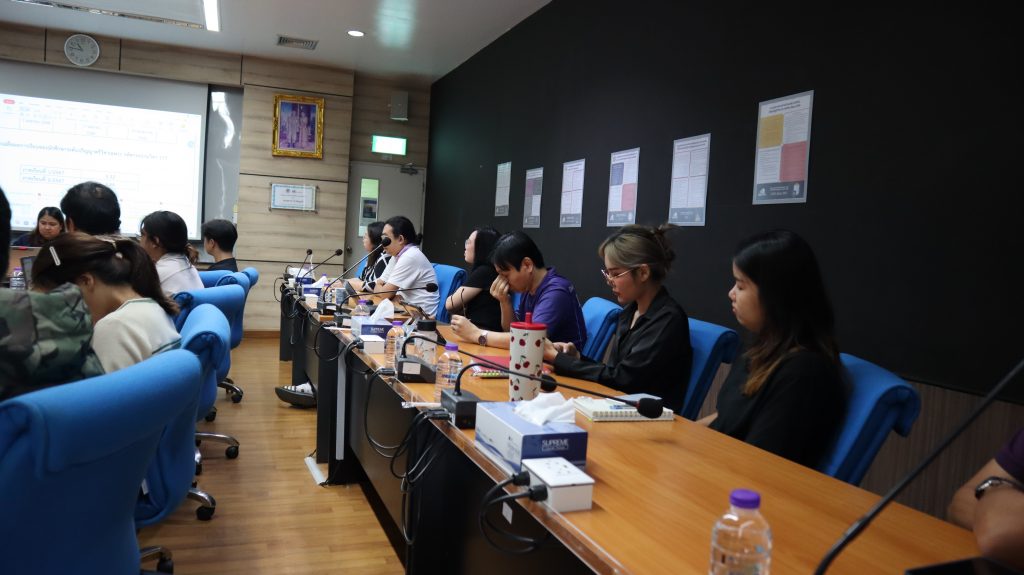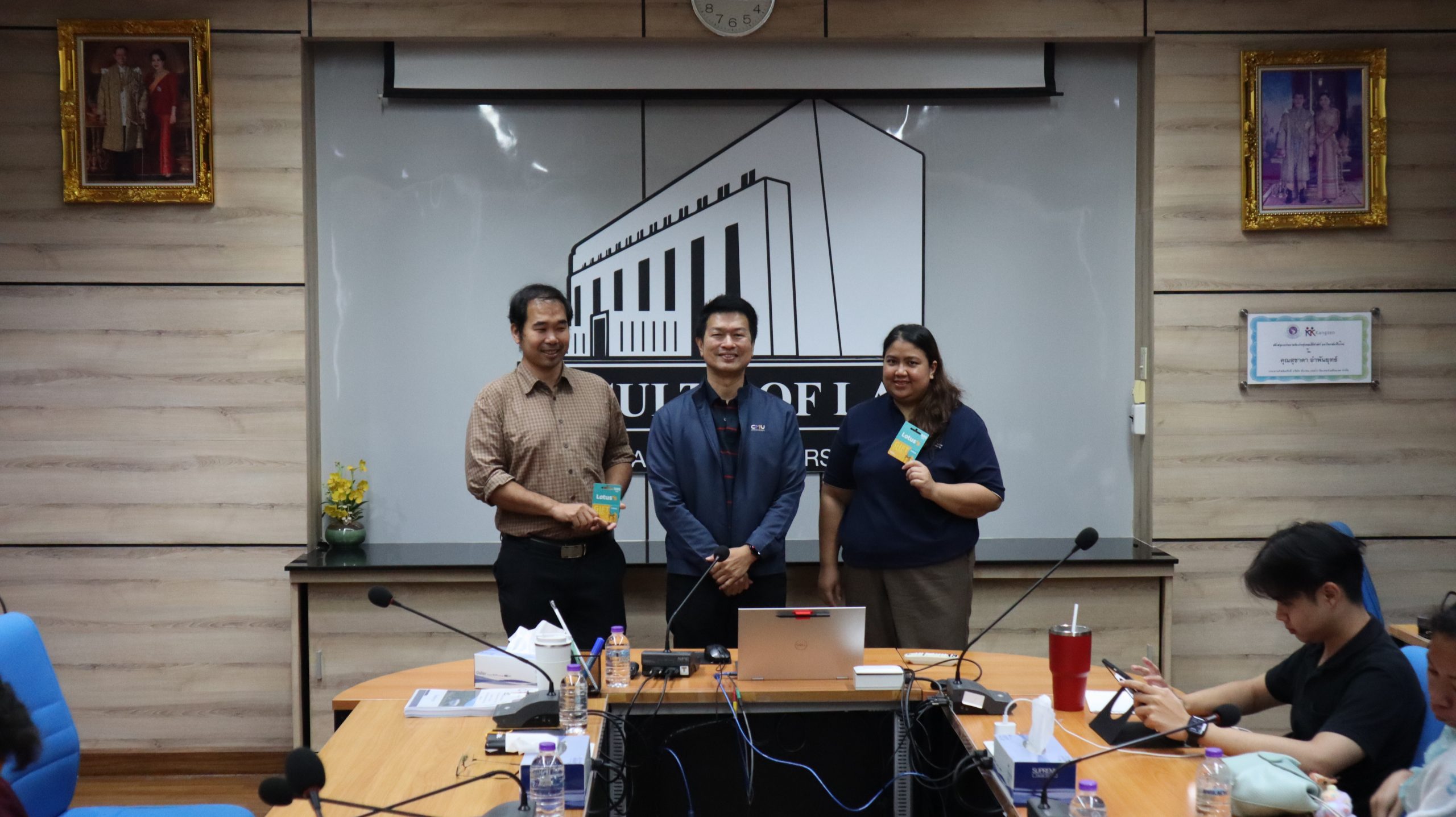
คณะนิติศาสตร์ มช. แบ่งปันแนวปฏิบัติและผลการดำเนินงานจาก 2 หน่วยงานหลัก เสริมสร้างประสิทธิภาพการจัดการศึกษาและบริการวิชาการสู่สังคม
[English below] คณะนิติศาสตร์ มหาวิทยาลัยเชียงใหม่ นำเสนอผลการดำเนินงานและแนวปฏิบัติที่สำคัญจาก 2 หน่วยงานหลัก ได้แก่ งานบริการการศึกษาและพัฒนาคุณภาพนักศึกษา และ ศูนย์ให้คำปรึกษาทางกฎหมาย (คลินิกกฎหมาย) โดยมีวัตถุประสงค์เพื่อแบ่งปันองค์ความรู้ กระบวนการทำงาน และผลลัพธ์ที่สะท้อนถึงการพัฒนาศักยภาพองค์กรตามยุทธศาสตร์ที่มุ่งสู่ความเป็นเลิศทางวิชาการและการเป็นที่พึ่งของสังคม
แนวปฏิบัติเรื่องการส่งลำดับขั้น – ป้องกันข้อผิดพลาด เสริมความรอบคอบ
งานบริการการศึกษาและพัฒนาคุณภาพนักศึกษาได้นำเสนอ “แนวปฏิบัติการส่งลำดับขั้น” ที่จัดทำขึ้นจากการสรุปปัญหาในช่วงปีการศึกษา 2562–2566 ซึ่งพบว่ามีการแก้ไขลำดับขั้นถึง 18 กระบวนวิชา สาเหตุหลักมาจากข้อผิดพลาดในการกรอกและคำนวณคะแนน ความเร่งรีบ หรือข้อจำกัดจากการสอนร่วมกันหลายอาจารย์
เพื่อลดปัญหาดังกล่าว คณะได้กำหนดแนวปฏิบัติ 10 ขั้นตอน ตั้งแต่การแจ้งกำหนดการ การตรวจสอบรายชื่อนักศึกษา การจัดตารางสอบ การควบคุมคุณภาพการส่งคะแนน ทั้งนี้ ผลการดำเนินงานเชิงประเมินพบว่า ปีการศึกษา 2567 ไม่มีการแก้ไขลำดับขั้นเพิ่มเติม แสดงให้เห็นถึงความรอบคอบและประสิทธิผลของแนวปฏิบัติใหม่ และเพิ่มความน่าเชื่อถือในการวัดและประเมินผลของคณะนิติศาสตร์
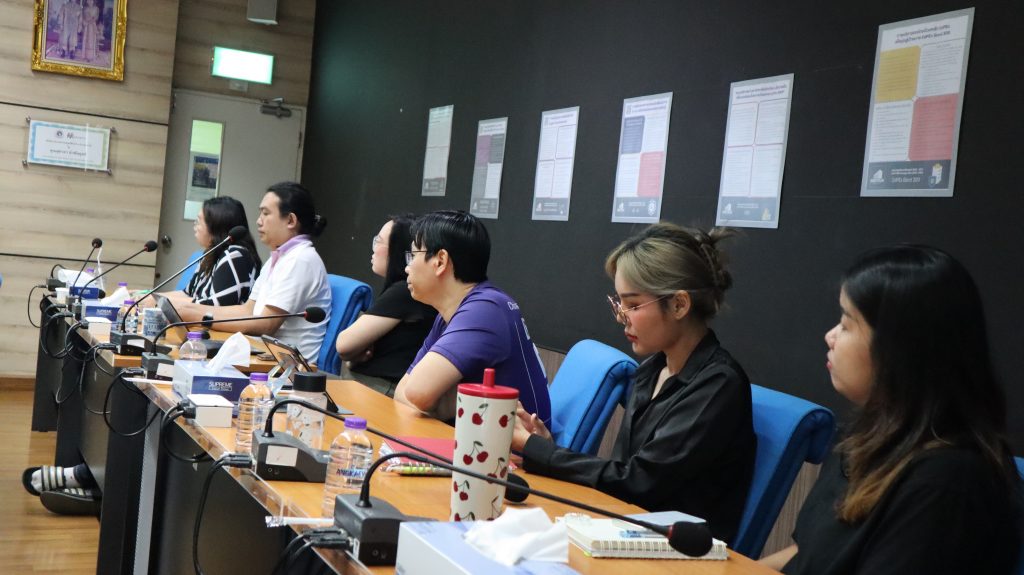
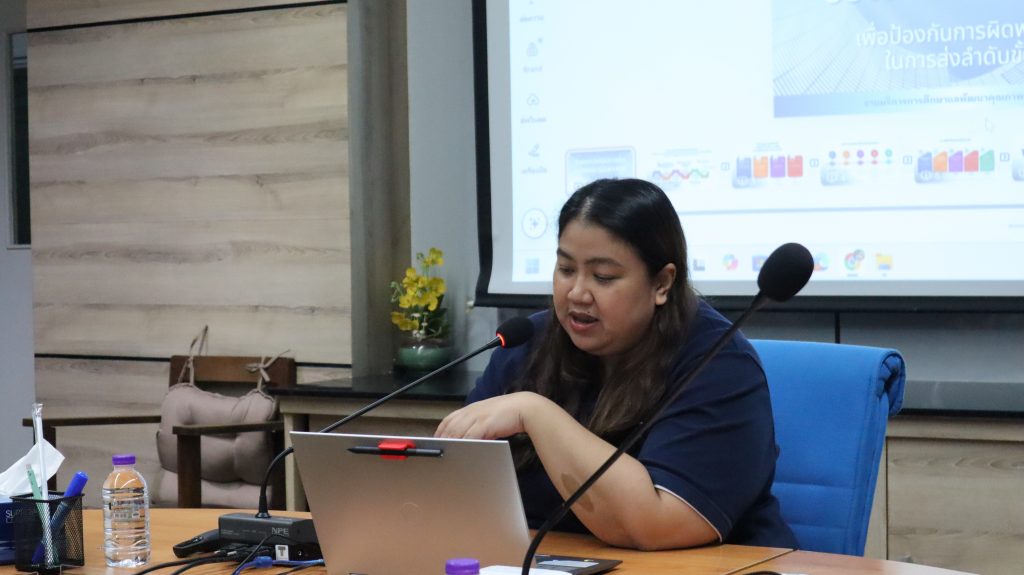
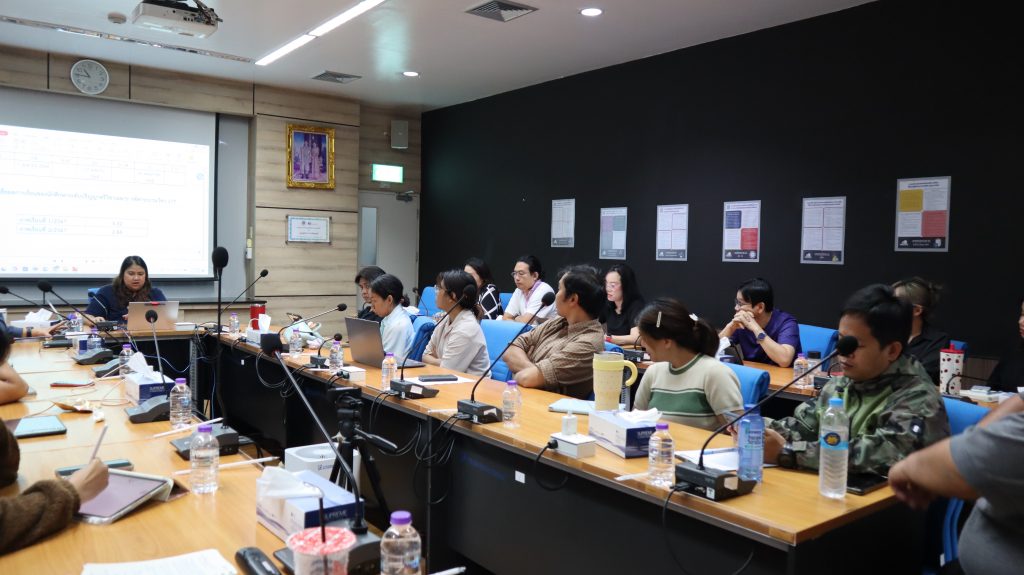
คลินิกกฎหมาย – ยกระดับการบริการวิชาการแก่สังคม
ศูนย์ให้คำปรึกษาทางกฎหมาย คณะนิติศาสตร์ ได้รายงานผลการดำเนินงานระหว่างเดือนมิถุนายน 2567 – พฤษภาคม 2568 รวม 98 เรื่อง โดยสามารถรับเรื่องและให้คำปรึกษาได้ถึง 79 เรื่อง (ร้อยละ 80.6) และกระจายตามหมวดกฎหมายสำคัญ เช่น แพ่งและพาณิชย์ (63.3%) อาญา (24.5%) และแรงงาน (6.1%) ช่องทางการรับเรื่องส่วนใหญ่ผ่านทางโทรศัพท์ (75.5%)
ข้อมูลยังสะท้อนว่ากว่าครึ่งหนึ่งของเรื่อง (32 เรื่อง) สามารถให้คำปรึกษาได้ภายในวันเดียวกัน ขณะที่บางกรณีต้องใช้เวลาติดตามมากกว่า 60 วัน โดยเฉพาะประเด็นด้านแรงงาน ซึ่งมีค่าเฉลี่ยระยะเวลา 35.3 วัน ถือว่ายาวที่สุด ศูนย์จึงใช้ข้อมูลดังกล่าวเพื่อปรับปรุงกระบวนการ ลดขั้นตอนที่ซ้ำซ้อน และเพิ่มความคล่องตัวในการตอบสนองต่อประชาชน
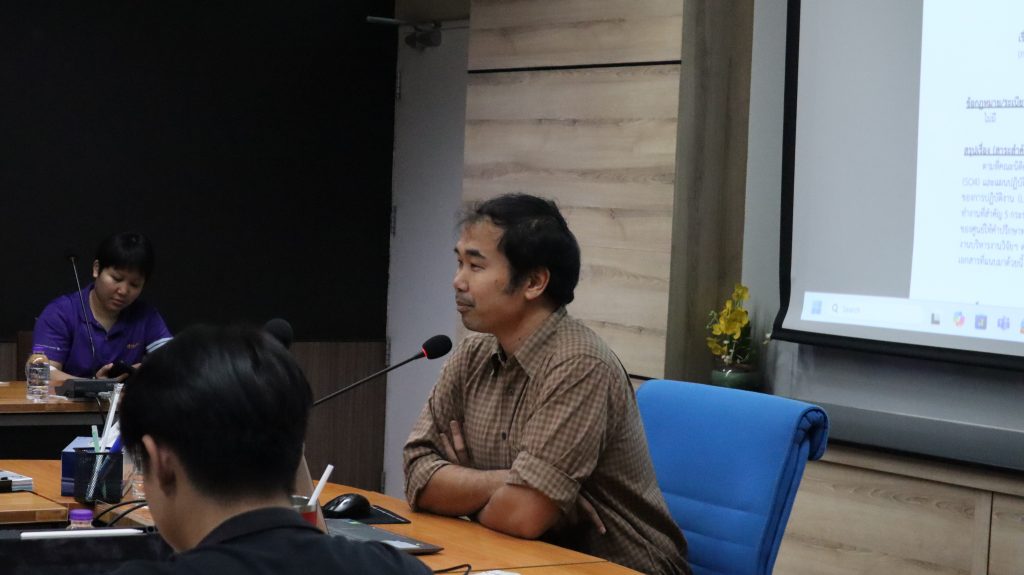
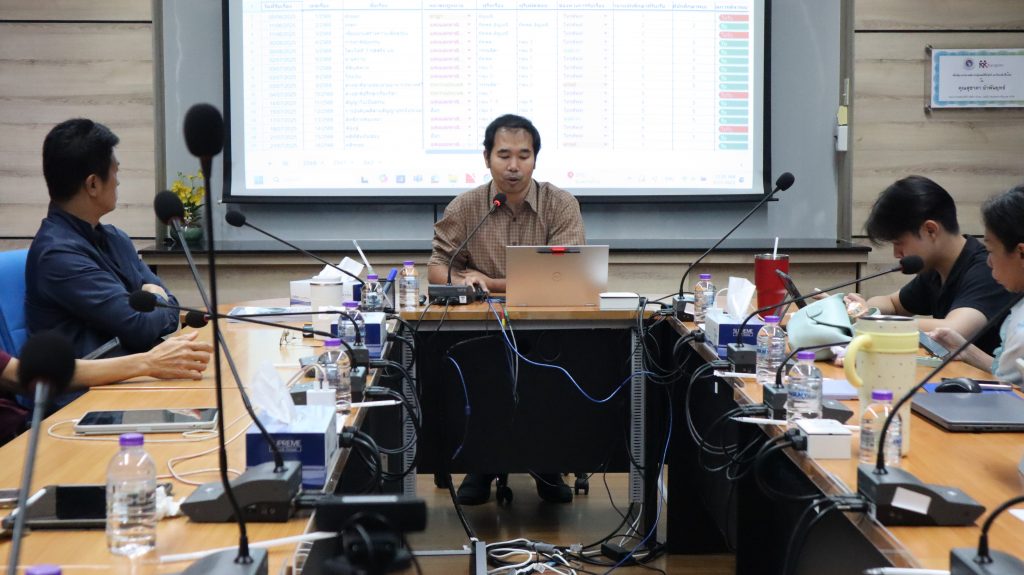
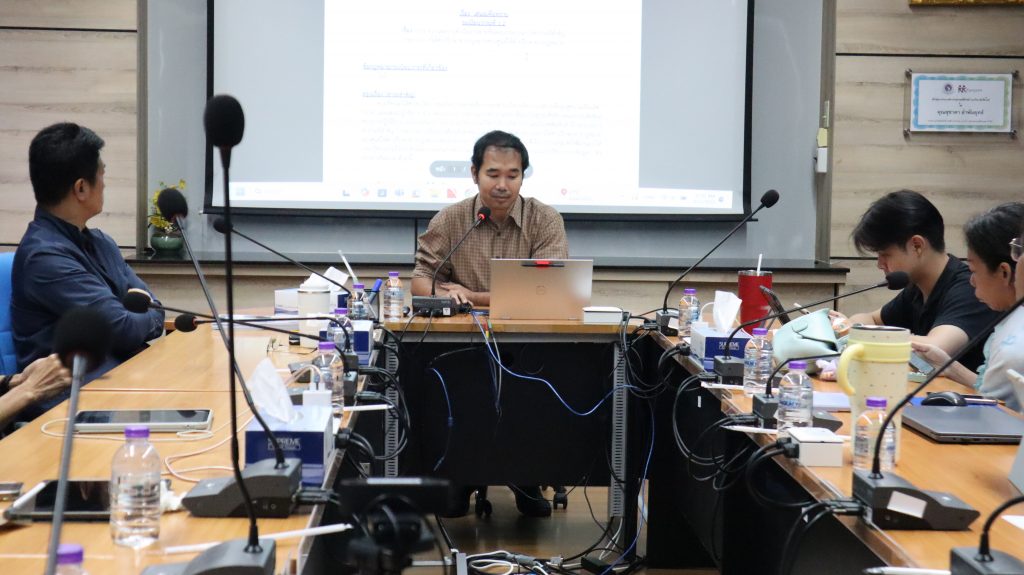
ผู้บริหารย้ำความมุ่งมั่นสู่ความเป็นเลิศ
ผู้ช่วยศาสตราจารย์ ดร.ชัยณรงค์ เหลืองวิลัย คณบดีคณะนิติศาสตร์ มหาวิทยาลัยเชียงใหม่ กล่าวว่า การแบ่งปันผลการดำเนินงานและแนวปฏิบัติจากทั้งสองหน่วยงานครั้งนี้ สะท้อนถึงความตั้งใจของคณะในการพัฒนากระบวนการภายใน (Lean & Agile) ควบคู่กับการยกระดับการบริการวิชาการที่ตอบสนองความต้องการของสังคม โดยทั้งบุคลากรสายสนับสนุนและอาจารย์ล้วนมีบทบาทสำคัญในการขับเคลื่อนให้คณะก้าวสู่การเป็นสถาบันการศึกษากฎหมายที่มีคุณภาพและเป็นที่พึ่งพิงได้อย่างแท้จริง
Faculty of Law, Chiang Mai University Presents Key Practices and Operational Results of Two Core Units
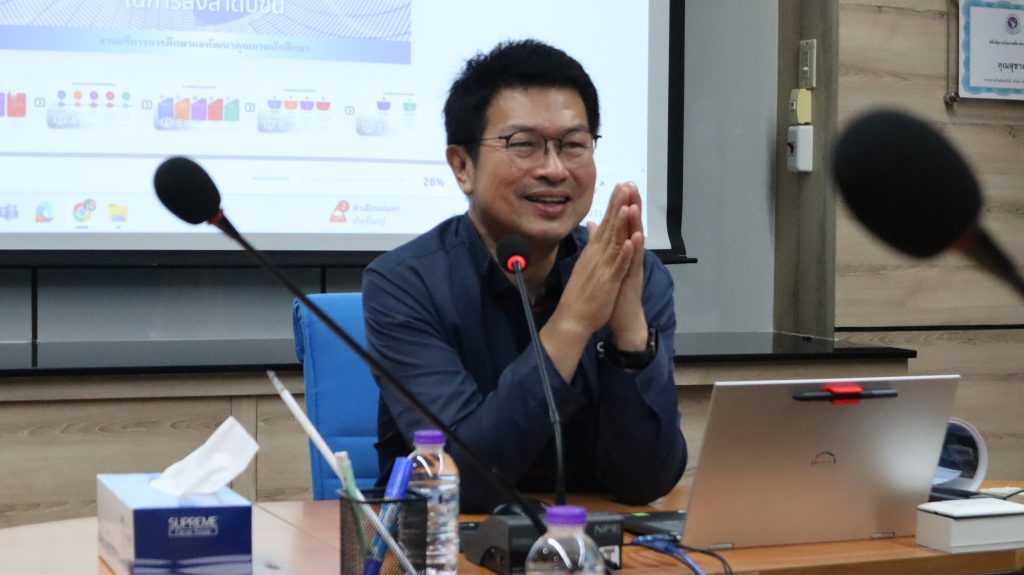
The Faculty of Law, Chiang Mai University, showcased the operational results and key practices from two main units: the Office of Academic Services and Student Quality Development, and the Legal Consultation Center (Law Clinic). The objective was to share knowledge, work processes, and outcomes reflecting organizational capacity development in line with the faculty’s strategic goals toward academic excellence and serving society.
Best Practices in Sequential Submission – Preventing Errors and Enhancing Accuracy
The Office of Academic Services and Student Quality Development presented the “Sequential Submission Best Practices,” developed based on issues identified during the 2019–2023 academic years. During this period, adjustments were made to 18 courses due to errors in grade entry and calculation, time pressure, or constraints from co-teaching arrangements.
To address these issues, the faculty established a 10-step best practice protocol, covering scheduling notifications, student list verification, exam scheduling, and grade quality control. Evaluation results show that no further course sequence adjustments were required in the 2024 academic year, demonstrating the diligence and effectiveness of the new procedures and enhancing the reliability of the faculty’s academic assessment.
Law Clinic – Advancing Academic Services for Society
The Legal Consultation Center reported on its operations from June 2024 to May 2025, handling a total of 98 cases, with 79 cases (80.6%) successfully accepted and consulted. Cases were distributed across major legal categories, including Civil and Commercial Law (63.3%), Criminal Law (24.5%), and Labor Law (6.1%). The majority of cases were received via telephone (75.5%).
Data also indicated that more than half of the cases (32 cases) were addressed within the same day, while some cases required follow-up exceeding 60 days, particularly labor-related matters, which averaged 35.3 days. The center has used these insights to streamline processes, reduce redundant steps, and increase responsiveness to the public.
Leadership Emphasizes Commitment to Excellence
Asst. Prof. Dr. Chainarong Luengvilai, Dean of the Faculty of Law, Chiang Mai University, stated that sharing the results and best practices of these two units reflects the faculty’s commitment to improving internal processes (Lean & Agile) alongside enhancing academic services that meet societal needs. Both support staff and faculty members play a crucial role in driving the faculty toward becoming a high-quality legal education institution and a reliable resource for society.
